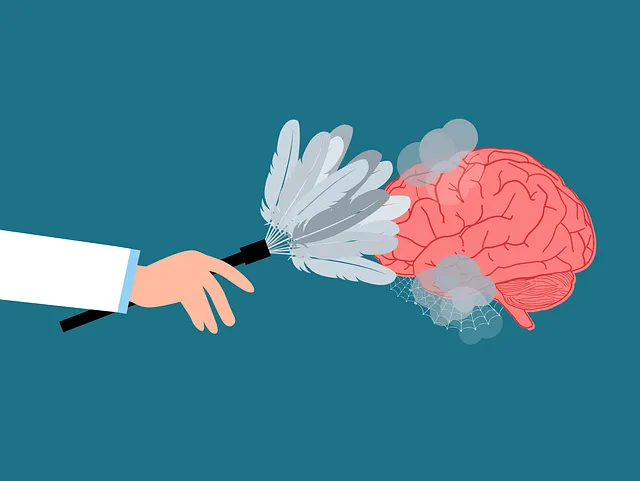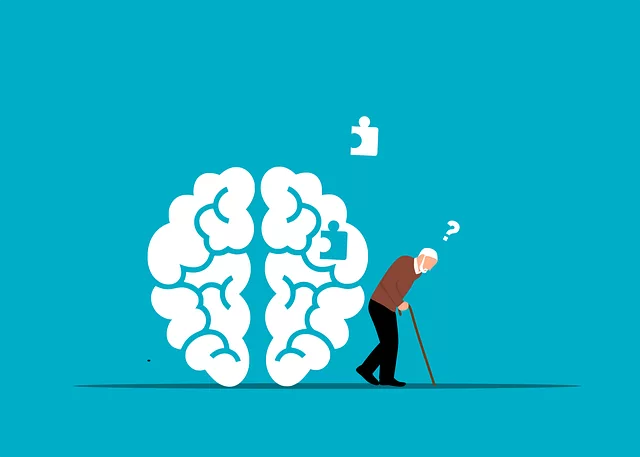The Kaiser Permanente mental health center in Parker prioritizes mental wellness as a vital component of overall health, utilizing self-assessment tools to empower individuals and improve patient outcomes. These tools, designed to be comprehensive and user-friendly, assess emotional states, coping mechanisms, social support, and resilience. By integrating technology through online platforms and mobile apps, the center enhances accessibility and personalization, enabling individuals to conveniently monitor their mental health from home. Continuous improvement is driven by robust evaluation, feedback collection, and data integration into risk management planning, fostering inner strength development and promoting best practices among professionals at the Kaiser Permanente mental health center in Parker.
Mental wellness self-assessment tools are gaining prominence in primary care settings, with organizations like Kaiser Permanente mental health center Parker leading the charge. This article explores the development of such tools, addressing the growing need for accessible and personalized mental health assessments. We delve into key considerations, the integration of technology, and evaluation methods to ensure continuous improvement. By understanding user needs and leveraging innovative solutions, self-assessment tools promise to revolutionize mental wellness management, much like Kaiser Permanente’s initiatives demonstrate.
- Understanding the Need for Self-Assessment Tools in Mental Health Care
- The Role of Kaiser Permanente Mental Health Center Parker in Initiatives
- Developing Effective Self-Assessment Tools: Key Considerations
- Integrating Technology for Accessible and Personalized Mental Wellness Assessments
- Evaluation and Feedback Mechanisms for Continuous Improvement
Understanding the Need for Self-Assessment Tools in Mental Health Care

In today’s fast-paced world, mental wellness is a critical aspect of overall health that requires regular evaluation and care. This need is especially pronounced in populations with high stress levels, like those living in urban centers such as the Kaiser Permanente mental health center in Parker. Self-assessment tools play a pivotal role in empowering individuals to take charge of their mental well-being. These tools provide an accessible and often confidential means for people to gauge their emotional state, identify potential issues early on, and track progress over time.
The development of effective self-assessment tools is particularly crucial for mental health professionals as part of their Risk Management Planning. By incorporating these tools into routine practice, professionals can enhance patient outcomes through improved mental wellness. Moreover, they offer a means to boost client confidence by fostering self-awareness and empowering individuals to actively participate in their care journeys.
The Role of Kaiser Permanente Mental Health Center Parker in Initiatives

The Kaiser Permanente Mental Health Center Parker plays a pivotal role in advancing mental wellness initiatives within its community. As a leading healthcare provider, the center has committed to enhancing access to mental health services and promoting overall well-being. Through various programs and resources, they strive to ensure that individuals from diverse backgrounds receive culturally competent care tailored to their unique needs.
One notable contribution is their extensive Healthcare Provider Cultural Competency Training, which equips medical professionals with strategies to build empathy and bridge cultural gaps. Additionally, the center actively engages in Community Outreach Program Implementation, reaching underserved populations and offering valuable support. These initiatives reflect Kaiser Permanente’s dedication to fostering an inclusive environment where mental health services are not only accessible but also culturally sensitive and responsive.
Developing Effective Self-Assessment Tools: Key Considerations

Developing effective self-assessment tools for mental wellness is a multifaceted process that requires careful consideration from various perspectives. At the Kaiser Permanente mental health center in Parker, experts emphasize the importance of creating instruments that are both comprehensive and user-friendly. These tools should not only assess symptoms but also delve into factors contributing to an individual’s emotional well-being, such as coping mechanisms, social support networks, and personal resilience.
In line with Mental Health Awareness initiatives, self-assessment tools should facilitate Emotional Healing Processes by providing insights that promote understanding and growth. Incorporating aspects of Inner Strength Development is equally crucial, encouraging individuals to identify their inner resources and strengths to better cope with challenges. This holistic approach, informed by best practices and research, ensures that the developed tools accurately reflect an individual’s mental wellness state and offer actionable recommendations for improvement.
Integrating Technology for Accessible and Personalized Mental Wellness Assessments

In today’s digital age, integrating technology offers a promising approach to enhancing mental wellness assessment accessibility and personalization. Online platforms and mobile applications developed by reputable institutions like Kaiser Permanente Mental Health Center in Parker can provide individuals with convenient and confidential self-assessment tools. These digital solutions allow users to assess their mental health from the comfort of their homes, breaking down barriers often associated with traditional face-to-face consultations.
By leveraging technology, these assessments can be tailored to individual needs, incorporating features like interactive questionnaires, personalized feedback, and recommendations for self-improvement. For instance, an app might offer modules on mindfulness meditation and conflict resolution techniques, catering to specific mental health concerns. This innovative use of technology ensures that individuals receive accessible, tailored support, fostering better mental wellness management.
Evaluation and Feedback Mechanisms for Continuous Improvement

Effective mental wellness self-assessment tools must incorporate robust evaluation and feedback mechanisms to facilitate continuous improvement. At Kaiser Permanente mental health centers in Parker, for instance, professionals utilize data-driven approaches to assess not only individual client outcomes but also the overall effectiveness of their practices and interventions. This involves regularly collecting feedback from clients, colleagues, and other stakeholders to identify areas of success and potential gaps. By integrating this feedback into their Risk Management Planning for Mental Health Professionals, centers can adapt and refine their services to better meet the evolving needs of their clientele.
Such iterative processes foster Inner Strength Development among mental health professionals by promoting a culture of continuous learning and improvement. Regularly reviewing assessment data allows practitioners to fine-tune their strategies for Stress Management, ensuring they remain current with best practices in the field. This not only enhances client outcomes but also contributes to the overall resilience and well-being of mental health professionals themselves.
The development of mental wellness self-assessment tools, as demonstrated by the initiatives at the Kaiser Permanente Mental Health Center Parker, is a significant step towards enhancing mental healthcare accessibility and personalized support. By integrating technology and considering key factors like cultural sensitivity and user experience, these tools can empower individuals to proactively manage their mental health. Continuous evaluation and feedback mechanisms ensure these assessments remain effective and relevant in meeting the diverse needs of the community, making them valuable resources for both personal growth and improved mental wellness services on a broader scale.






